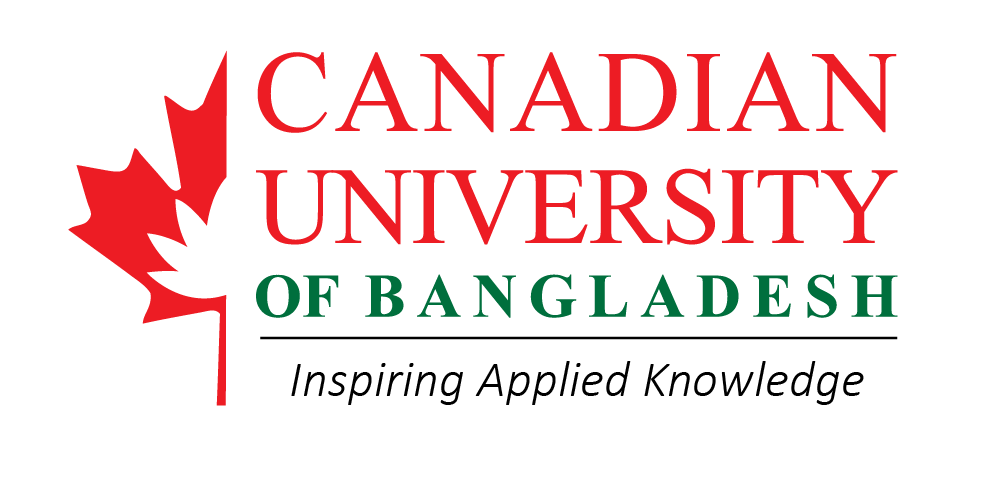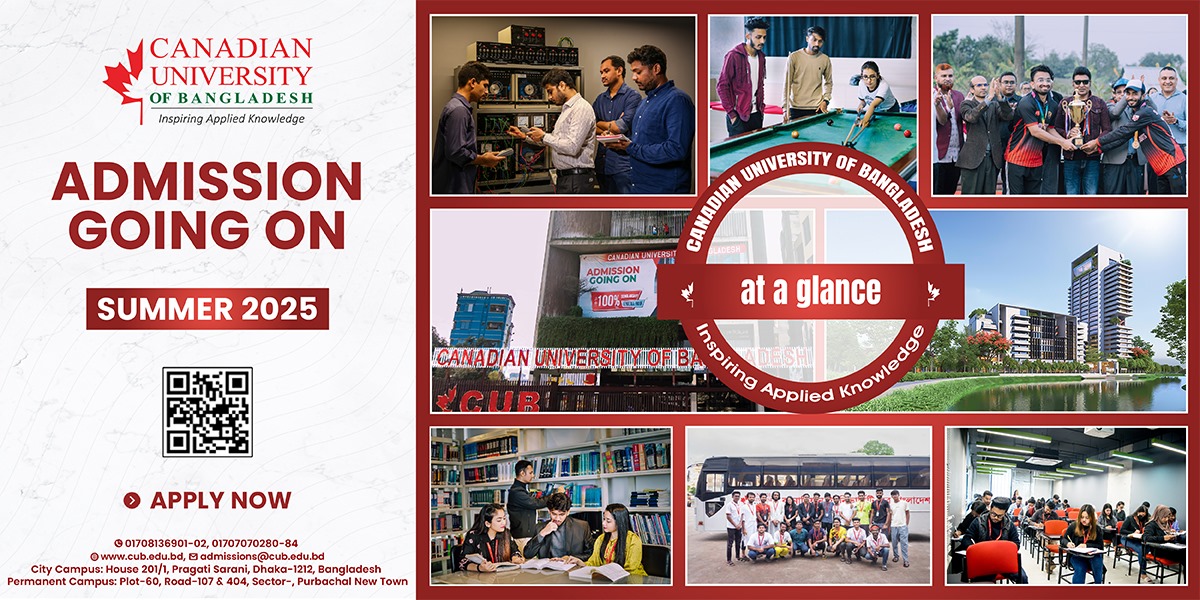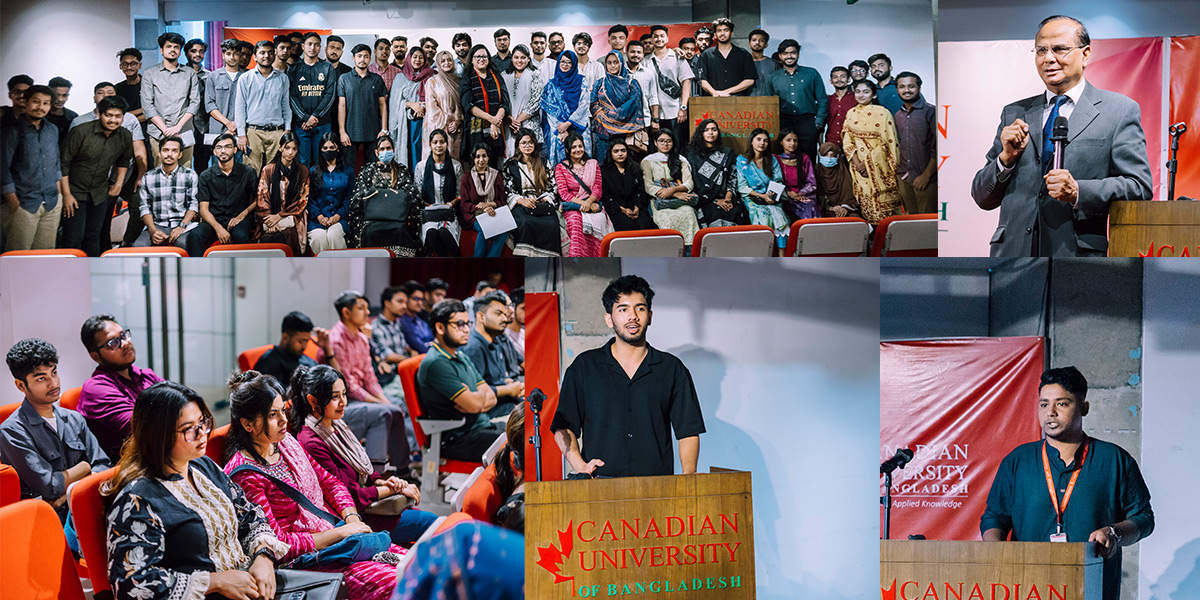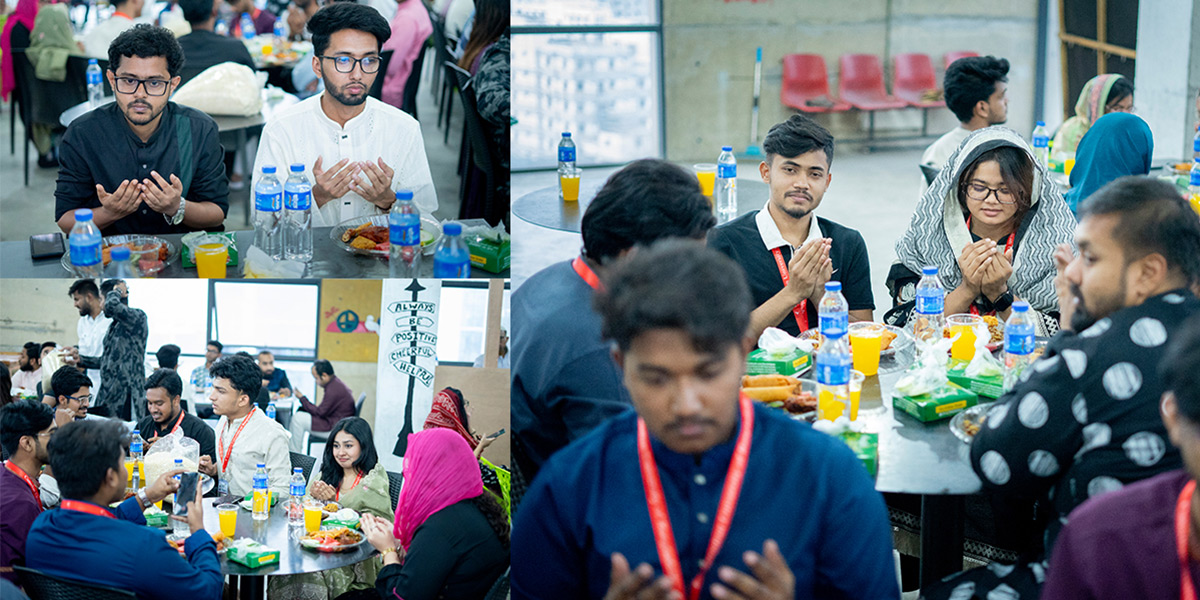 Welcome to CUB
Welcome to CUB
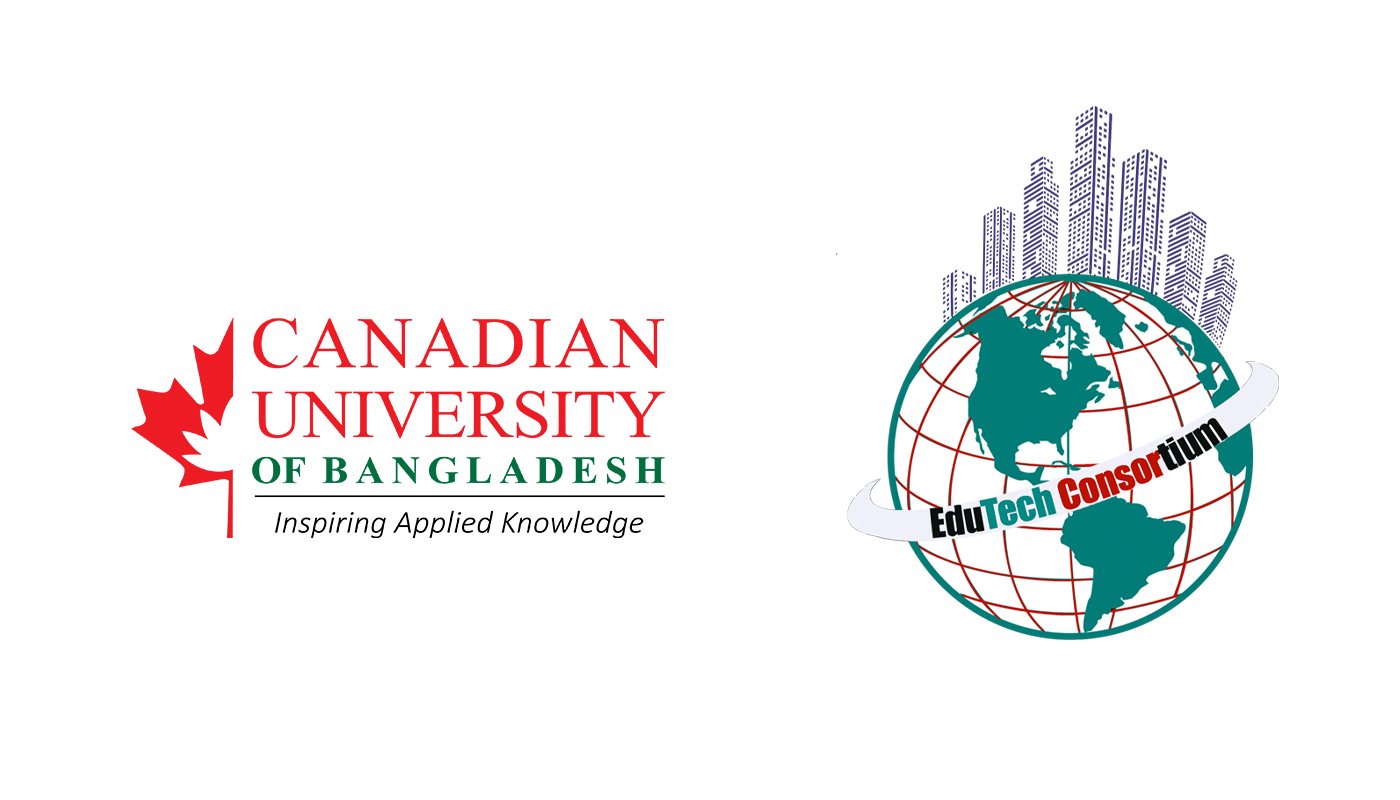
‘EduTech Consortium’ at Canadian University of Bangladesh.
Rooted in our commitment to advancing knowledge, fostering innovation, and preparing students for the challenges of a rapidly evolving world, the " EduTech Consortium " serves as a hub where education, technology, and industry seamlessly converge. It is a catalyst for meaningful partnerships, driving the exchange of ideas, resources, and expertise between the academic community and the vibrant tapestry of industries.
More than a mere institute/center, the "EduTech Consortium" is a crucible of possibilities, where ground breaking research, cutting-edge technology, and entrepreneurial spirit come together. It is a space where students, faculty, and industry leaders coalesce to explore, create, and pioneer solutions that transcend boundaries.
As we embark on this transformative journey, the "EduTech Consortium" is poised to redefine the landscape of collaborative learning, research, and innovation. Together, we envision a future where the boundaries between academia and industry blur, giving rise to a new era of knowledge creation, technological advancements, and societal impact.
Join us in this endeavor as we unleash the potential of collaboration, driving the fusion of education and technology to shape a future that is not only academically enriching but also technologically empowered and industrially relevant. Welcome to the "EduTech Consortium.", where the synergy of minds creates a tapestry of endless possibilities.
A. " EduTech Consortium ." : Functional Structure
This functional structure reflects the key divisions and roles within the " EduTech Consortium." at the Canadian University of Bangladesh, emphasizing its commitment to fostering collaboration
Between academia and industry while promoting research, innovation, and skill development.
1. Directorate:
· Director: Prof. Miftahur Rahman, Ph.D.
· Deputy Director
· Administrative Staff
2. Academic Liaison Division:
· Academic Coordinator
· Liaison Officers (Assigned to various academic departments)
· Student Engagement Coordinators
3. Industry Collaboration Division:
· Industry Relations Manager
· Corporate Partnership Officers
· Industry Engagement Coordinators
4. Research and Innovation Wing:
· Research Director
· Innovation Manager
· Research Coordinators
· Technology Transfer Officers
5. Skill Development Unit:
· Skill Development Manager
· Training Coordinators
· Workshops and Seminars Organizers
6. Technological Infrastructure Section:
· IT Infrastructure Manager
· Lab Coordinators
· Equipment and Facility Managers
7. Entrepreneurship Support Center:
· Entrepreneurship Director
· Startup Incubation Managers
· Business Development Coordinators
8. Marketing and Outreach Department:
· Marketing Manager
· Communications Specialists
· Outreach Coordinators
9. Quality Assurance Division:
· Quality Assurance Manager
· Evaluation and Impact Analysts
· Continuous Improvement Coordinators
10. Finance and Administration Department:
· Finance Manager
· Administrative Officers
· Budget and Grants Coordinators
11. Advisory Board:
· External Industry Experts
· Academic Leaders
· Government Representatives
B. Revenue structure and sources for the " EduTech Consortium"
The revenue structure and sources for the " EduTech Consortium" at the Canadian University of Bangladesh can be diversified and may include:
1. Industry Partnerships and Collaborations:
· Membership Fees: Companies can pay annual or project-based membership fees to access the resources and benefits of the " EduTech Consortium".
· Research Collaborations: Generating revenue through collaborative research projects with industry partners, where funding is provided for joint ventures.
2. Training and Skill Development Programs:
· Workshops, Training Courses and BS Courses: Charging fees for specialized workshops, training programs, and certification courses conducted by the center. The Canadian University of Bangladesh is preparing to introduce two Bachelor of Science programs, one focusing on Artificial Intelligence (AI) and Robotics, and the other on Data Analytics. These programs adhere to the standard semester duration and tuition structure, overseen by the EduTech Consortium to ensure alignment with real-world applications.
· Customized Training for Corporations: Offering tailor-made training programs for corporate entities on a fee basis.
3. Technology Transfer and Licensing:
· Intellectual Property (IP) Commercialization: Licensing and commercializing university-developed technologies and intellectual property to industry partners for a fee.
4. Start-up Incubation and Support:
· Incubation Fees: Charging fees for startups incubated within the center, including providing office space, mentorship, and support services.
· Equity Participation: Taking equity stakes in startups in exchange for support services.
5. Consultancy Services:
· Expert Consultancy: Providing consultancy services to businesses and industries on specific academic and technological expertise for a fee.
6. Government Grants and Funding:
· Research Grants: Securing research grants from government agencies to fund collaborative research projects.
· Skill Development Grants: Applying for grants related to skill development initiatives and training programs.
7. Events and Conferences:
· Sponsorships: Attracting sponsorships for conferences, workshops, and events organized by the " EduTech Consortium."
· Participation Fees: Charging fees for participation in events and conferences.
8. Alumni and Donor Contributions:
· Alumni Contributions: Seeking financial support from alumni who have benefited from the center's programs.
· Donations and Endowments: Encouraging philanthropic contributions from individuals and organizations.
9. Government Collaborations:
· Public-Private Partnerships (PPP): Collaborating with government initiatives and participating in PPP projects.
10. Publication and Knowledge Dissemination:
· Publication Fees: Charging fees for academic publications, reports, and white papers produced by the center.
